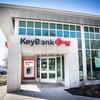As a nationwide affordable housing crisis continues to inflict pain on renters and would-be homebuyers across the Centennial State, a tool that gets little public attention has emerged as a key means to get more people into homes they can afford.
This tool also helps stabilize neighborhoods struggling to deal with increased property values and an influx of new money.
For 15 years, land trusts have been quietly helping people buy homes in Denver’s Lowry, Cole and Speer neighborhoods through the nonprofit Colorado Community Land Trust.
Land trusts, typically 501c3 nonprofit organizations, work like this: They buy and refurbish homes or bring on developers to build homes on land they own. They then sell those homes to income-qualified buyers (usually making 80 percent or less of the area median income) at deep discounts. That’s according to Jane Harrington, the longtime executive director of the land trust.
Efforts to create new trusts and extend that reach have been ramping up since 2017 and are now poised make big impacts this year and beyond. That expansion starts with one house in Aurora.
Officials with the fledgling Elevation Community Land Trust and the city of Aurora gathered late last month to celebrate the organization’s first home getting ready to hit the market. It’s a renovated five-bedroom house on Kenton Street. Aurora matched the donation-backed land trust’s investment in the property dollar for dollar, officials said. Once Elevation’s staff gets an income-qualified family into that home, it will move on to seven other houses in the surrounding neighborhood, all expected to be occupied by the end of the year, said Elevation president and CEO Stefka Fanchi.
Ultimately, through partnerships with Aurora, Denver, Longmont, Loveland and potentially other Colorado cities, Elevation is aiming to establish a network of 700 permanently affordable housing units across Colorado. Its pipeline includes 60 scattered homes in Denver and a 92-unit affordable condo project near the intersection of Sixth Avenue and Santa Fe Drive. By making them permanently affordable, Fanchi views the properties Elevation is acquiring and building with development partners as community assets, as valuable as roads and bridges.
“We can’t have a functioning economy and functional society without providing places for people to call home,” said Fanchi, the former head of Habitat for Humanity of Colorado. “When it comes to homeownership, that’s the largest asset that most people own in their lifetime, and what a land trust does is really helps provide that valuable asset for a family but also makes it so it becomes a community asset, a piece of public infrastructure.”
Harrington’s Colorado Community Land Trust is set to sell a townhouse this month for less than $200,000. It appraised for $418,000. The land underneath the home remains the property of the trust and is leased to the homeowner for a self-renewing 99-year term.
There is a catch for Colorado Community Land Trust homeowners. They have to resell the home at a discounted price to another qualified buyer, and they can take no more than 20 percent of the increase of the home’s value with them when they sell, depending on how long they have lived there. There is no cashing in on huge equity increases as many have done in the private market.
“What land trusts do is what we call stewardship, which means we work with our homeowners from before the time they bought their home to when they might sell it and everything that could happen in between,” Harrington said. “We work them to support them if they hit a financial rough patch. We support them as much as we can.”
That stewardship has paid off. Founded in 2002 in Lowry as a means to keep at least 10 percent of the new housing built on the former Air Force base affordable, Colorado Community Land Trust sold its first homes in late 2004. A few years later, when the mortgage crisis hit, Lowry was rocked by foreclosures, but the trust didn’t lose a single home.
Today, the trust has 186 homes in Lowry, three in Speer and 11 townhomes completed in 2017 in the Cole neighborhood. Fourteen more homes in Lowry are expected to go up for sale early next year. Of the 125 residents that have sold their Colorado Community Land Trust homes and moved on, 68 percent have gone on to buy market-rate homes.
The homebuyers
Moving into a land trust home in 2015 provided Whitney Whitson and her family with stability. Before buying her three-bedroom Lowry townhouse for $165,000, Whitson, a single mom, was living in transitional housing for families facing homelessness with her two daughters, then ages 4 and 6. She remains grateful for those housing opportunities, but because there were time limits on how long families could stay, it made it impossible for her and her daughters to put down roots.
“We always had to worry about what our next move was,” Whitson said.
Buying her land trust home “was an amazing change and an amazing opportunity,” she said. “Allowing my daughters to see what was so possible was huge.”
Chris Dani has purchased the same Colorado Community Land Trust home in Lowry’s Maple Park on two different occasions, living in a market rate home for a few years before returning to the neighborhood — and the townhome where he and his wife lived when their two daughters were born — two years ago.
For the University of Denver academic counselor, the three bedroom, 2.5-bath unit he bought for $206,000 (the second time) means that he can focus on the job he loves and his wife can work part time without having to make housing payments that are beyond their means. His kids get to grow up in a mixed-income neighborhood crawling with friends their own age.
“We realized we were working longer hours to pay for something that wasn’t necessary,” Dani said. “We love this neighborhood.”

LaDios Muhammad signed a $168,000 mortgage two years ago for a home she says now appraises for $440,000 in the Colorado Community Land Trust’s Solis Townhomes development in Cole.
She went from renting a two-bedroom, one-bath apartment for $1,150 per month in Park Hill to owning a tri-level, three-bed, 2.5-bath townhouse with an unfinished basement. All told, her monthly payments including her land lease are $1,170 , she said. Working as an executive assistant in the solar industry and a TV and film actor, Muhammad is now living comfortably in a house with solar power and efficient appliances, things she values.
“The beautiful thing is once you’ve closed on your loan, you can make as much money as you want,” Muhammad said. “You can better yourself. ”
Getting into the Solis development also allowed Muhammad to live where she wanted to live: the 80205 ZIP code, a section of northeast Denver she has called home for much of the past 30 years. Covering the Cole, Whittier and portions of Five Points and other Denver neighborhood, the ZIP code has seen rapid gentrification over the past few decades. Muhammad lays much of that at the feet of developers focusing on luxury housing well beyond the reach of many people in Denver.
“I don’t think gentrification is necessarily bad. I’m all for improving the neighborhood. I think it’s not good when people can’t afford to live in the neighborhood,” she said.
Related Articles
- July 4, 2019
Developers on Lakewood’s anti-growth vote: “Uncertainty is never a businessperson’s friend”
- July 4, 2019
Believe it or not, there are still apartments in Denver for under $1,000 a month. Here’s where.
- June 25, 2019
Once the site of an East Colfax strip club, Denver selects developers for affordable housing project
- December 20, 2018
Vacant buildings near Sixth and Santa Fe in Denver bought for $1.8M, tabbed for affordable housing
- December 7, 2017
700 homes in 5 years: Metro Denver homeownership initiative has raised $24 million to help low-income families
It’s the land trust model’s ability to stabilize neighborhoods and prevent economic displacement that has made it a priority for people living in north Denver’s Globeville and Elyria-Swansea neighborhoods. The predominately Latino and low-income area have been squeezed in recent years by things including the Interstate 70 expansion project and an influx of interest from buyers priced out of other parts of town.
Last summer, the Colorado Department of Transportation granted $2 million to affordable housing efforts in Elyria-Swansea, which was matched by $2 million from the city of Denver. That money, officially granted to affordable housing developer Brothers Redevelopment, will feed a new land trust in the area.
It’s getting started with five homes — two duplexes and a single-family house — that should be ready for purchase by the end of the year. Those homes will be part of the Colorado Community Land Trust’s inventory until a new board, now studying under Harrington’s tutelage, is ready to take over. Ultimately, that trust could grow to 15 properties and may include affordable rental projects in the neighborhood.
Nola Miguel, director of the Globeville, Elyria-Swansea Coalition, said most people in her neighborhood make between 30 and 60 percent of the area median income in Denver, making market-rate homeownership a pipe dream. With the support of a land trust, Miguel hopes her neighborhood can fight back against the gentrification that has taken place in many other parts of north Denver.
“Our efforts specifically in GES is to prevent displacement, to help long-term community members who called GES home and allow them to become homeowners,” she said. “It’s stewardship of the land, but it’s also stewardship of the families.“


